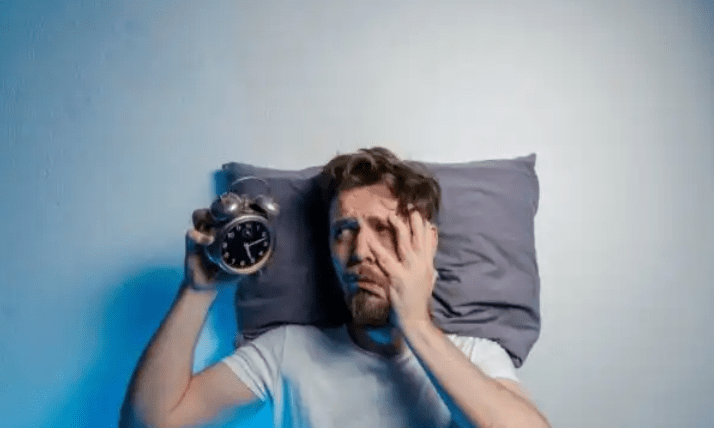During the summer months, it can be difficult to fall asleep or stay asleep at night. We tell you what causes this insomnia and what you can do about it.
After a year of stress, work pressure and various other obligations, we look forward to summer to relax. However, despite the more free time and relaxation associated with vacations, our bodies don’t seem to want to cooperate and sleeping becomes an impossible task. In fact, insomnia in summer is very common and is due to various causes. Fortunately, there are ways to fight it.
Difficulty falling asleep or staying asleep is no small problem. Lack of sleep affects our mood, cognitive functioning and physical performance. If we get insufficient sleep, we are likely to feel tired, sluggish and lack energy. We also feel irritable and cranky and have difficulty concentrating.
- The Brain and the Universe Share Many Common Features
- Keep up your level? Couples with similar “desirability” are allegedly more likely to remain together.
To avoid these unpleasant consequences, it is important to know what causes insomnia and what measures to take to reduce its impact.

Why does insomnia occur in summer?
Paradoxically, the things you love most about summer are the things that can become your worst enemies when it comes to rest. Here are the main ones:
More hours of light
In summer there is more daylight and the sun sets later. While this allows us to spend more time outdoors, it can also affect melatonin production. This hormone is naturally produced by the body and is responsible for triggering sleep each night.
Normally, as ambient light decreases, melatonin production starts to increase, signaling the body that it’s time to sleep. In summer, this release is delayed and can cause problems falling asleep.
High temperatures
This is one of the most obvious causes of insomnia in summer. The ideal ambient temperature for sleep is around 18-21 °C. However, in many homes it is almost impossible to maintain.
When the ambient temperature exceeds 26 °C, it becomes really difficult to fall asleep and get quality rest. Also, if we choose to open the windows to regulate the temperature, we are exposed to ambient noise and excessive light that can interfere with our rest.
Lack of physical exercise
Physical exercise is an excellent ally in fighting insomnia and improving sleep quality. However, during the summer months, our physical activity levels decrease significantly. We spend most of our time in sedentary activities and this can harm us in the transition to sleep.
Different habits and lack of routine
It is also common for our routines to become disorganized during the summer months. Indeed, during the holidays we go to bed later and get up later than usual and don’t stick to fixed schedules. This lack of regularity can mean that we don’t know when we need to rest and when we need to be active.
Also, naps are common in summer and if they exceed a certain duration, they can disrupt our night’s rest.
Leisure and excess
Finally, the summer period often leads us to some excesses that are detrimental to our rest. We eat heavier meals, drink more alcohol and tend to do so closer to bedtime. It’s even common for us to be more active in the last hours of the day, which makes it harder for our bodies to prepare for rest.
How to fight insomnia in summer?
In short, there are many factors that contribute to insomnia occurring more during the summer months. Nevertheless, there are some measures you can take to combat it:
- Ventilate and cool your bedroom before going to sleep. As far as possible, you should ensure that your environment remains at an optimum temperature.
- It is also helpful to use new bedding made of fabrics such as cotton or linen.
- Exercise regularly and avoid a sedentary lifestyle. However, it is important not to do this in the few hours before bedtime, as this can stimulate you and prevent you from falling asleep.
- Try to follow a routine and stable schedule. Even if it gets dark later, you don’t need to postpone your dinner or bedtime. Even if you are on vacation, you should not change your usual routine excessively.
- Naps should not exceed 30 minutes and should not be taken after six in the evening.
- You should avoid alcohol, tobacco and other stimulants a few hours before bedtime. You should also opt for light dinners and give yourself time to digest them before bedtime.
- Help your body to recognize when it needs to rest and when it doesn’t. To do this, try to be active during the day and spend some time before bed doing quiet activities that lower your activation levels and increase drowsiness.
- Regulate your exposure to light during the last hours of the day to stimulate melatonin production. Try drawing curtains and blinds from 8pm onwards, maintain dim lighting and avoid using screens.
It is not always possible to follow the above guidelines; however, try to do so whenever possible. This will help you fight summer insomnia and get a better night’s sleep. So you will be in a better mood and have more energy during the day.


